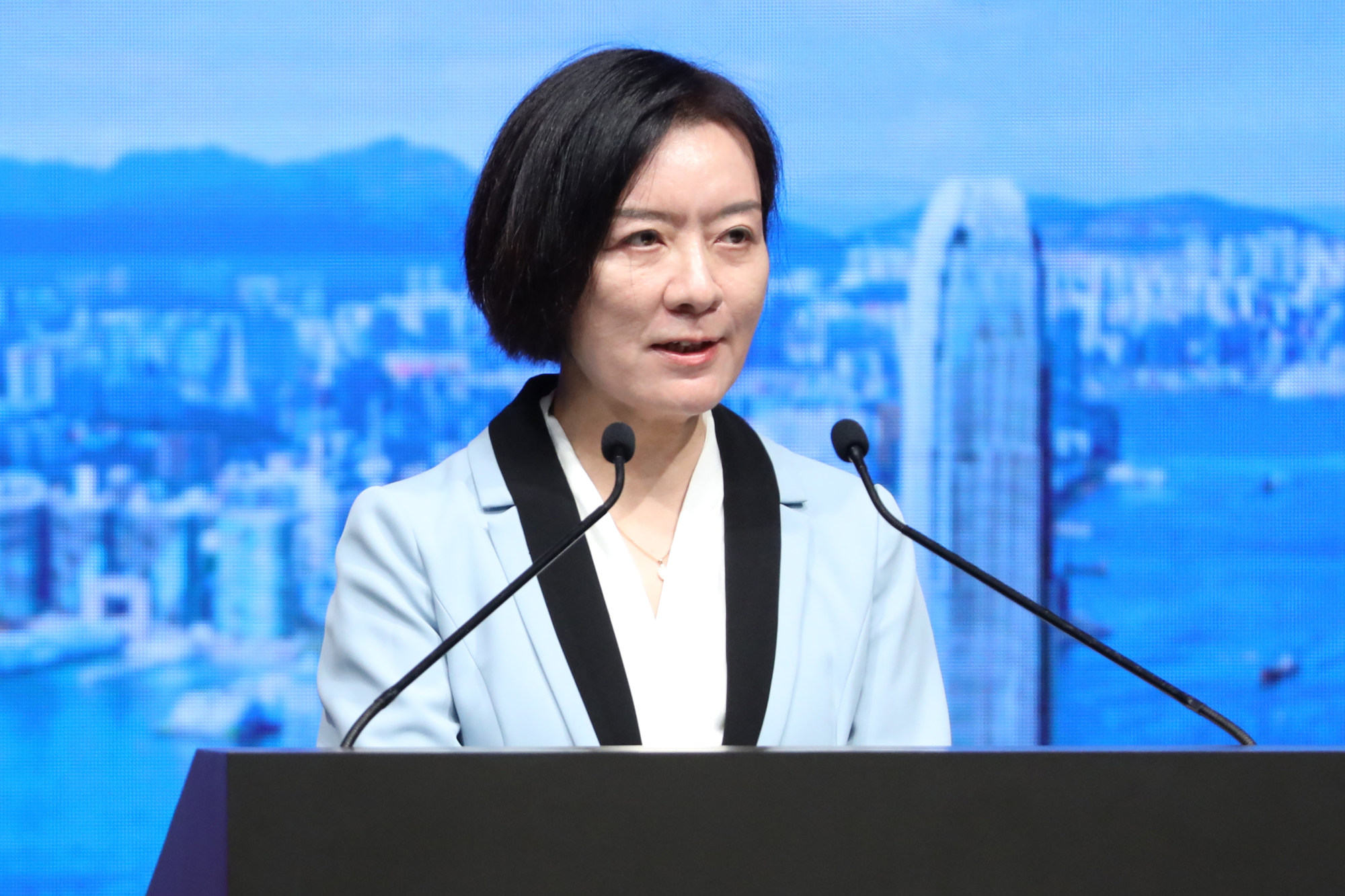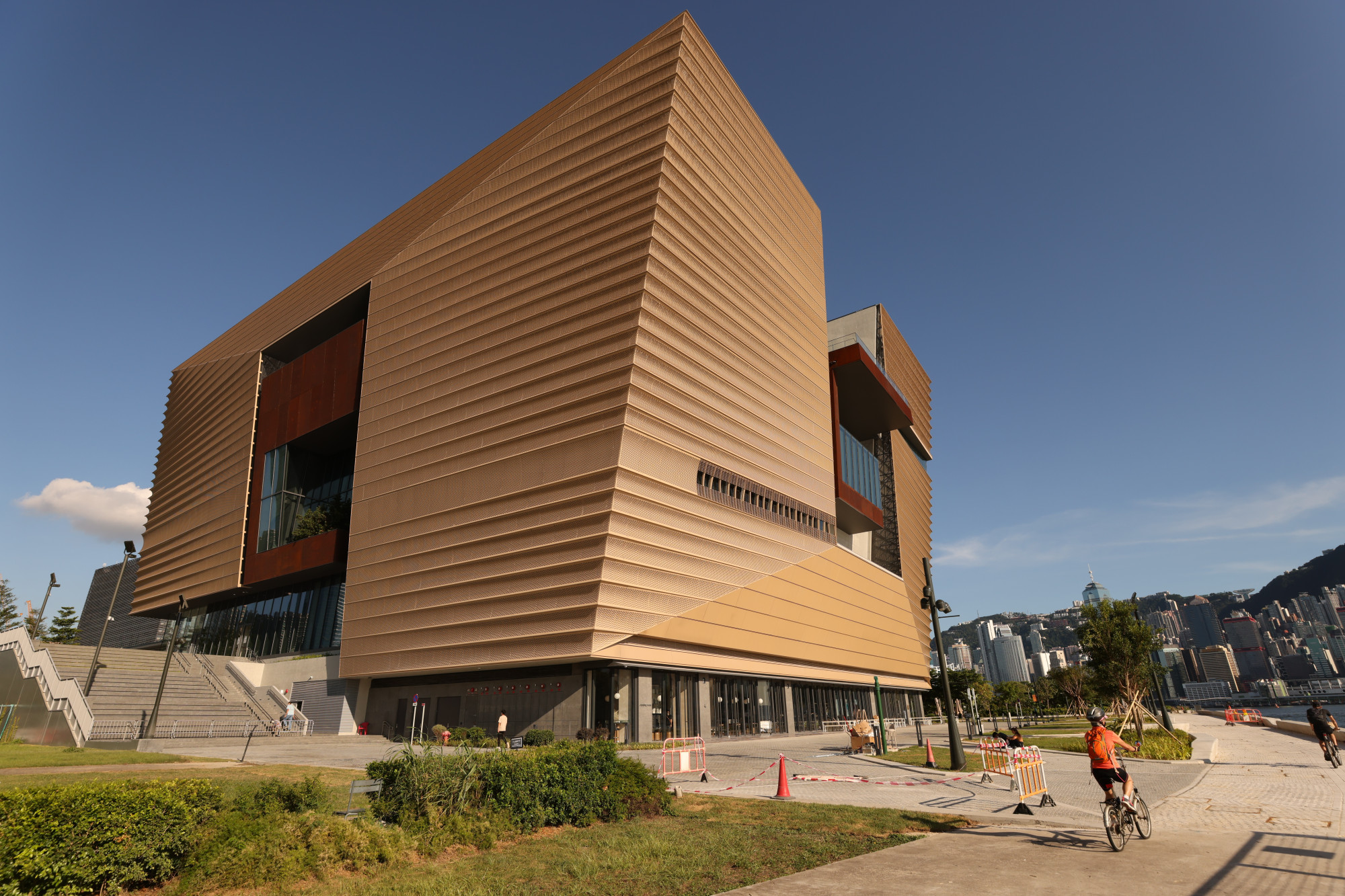
Hong Kong should turn to culture to compete against New York and London, says senior mainland official
- Cultural development will boost city’s pursuit of financial and innovative goals, according to deputy director of Beijing’s liaison office
- Empowering the city’s cultural sector could also add new engine for Hong Kong’s economic development, she says
Hong Kong should aspire to become a cultural hub comparable to other international financial centres such as New York or London, serving as a “super connector” between the nation and the rest of the world, a senior state official has said.
But the head of Hong Kong’s art hub warned that raising the city’s profile further would first require ending travel curbs not only with mainland China but also the rest of the world.
Speaking at a summit organised by Ming Pao on Thursday, deputy director of Beijing’s liaison office Lu Xinning singled out the lack of cultural competitiveness as one of the city’s weaknesses. Beijing’s plan for Hong Kong to develop arts and culture was not a hindrance to its goal of serving as a hub for finance and innovation, but rather a boost towards those ends, Lu argued.

“Forging Hong Kong as an international art and cultural exchange hub will not lessen its importance as a financial and innovation centre, but facilitate its overall competitiveness,” she said.
Lu argued that Hong Kong was often measured against New York and London, yet those two cities not only surpassed Hong Kong in terms of financial services, but also on the cultural front.
“New York and London can be described as world-class capitals of art, with their museums, art exhibitions, theatres, publications and sports all boasting the best international standard, which lure people from all over the world to travel there,” she said.

“Hong Kong’s economy has been monolithic, with the financial sector dominating, while other traditional industries such as trading, retail and tourism lack steam to thrive. But the cultural industry boasts broad content, huge capacity and strong penetration power, with visible results in the short-run and unlimited potential in the long term.”
Echoing Chinese President Xi Jinping’s recent remarks when he visited the city in July, Lu said Hong Kong had a “unique and obvious advantage” in connecting with the rest of the world while also receiving support from Beijing.
“As a vital bridge between mainland China and the world, Hong Kong plays a key role in telling the China and Hong Kong stories well to the rest of the world,” she said.
Ensuring the city became a strong cultural platform would also be conducive to promoting the value of “love the country, love Hong Kong”, Lu added, using a catchphrase adopted by Beijing and local officials to refer to patriotism.

But Henry Tang Ying-yen, chairman of West Kowloon Cultural District Authority, warned that Hong Kong’s development as an arts hub was predicated on fully reopening its borders with the mainland and the rest of the world soon. Curbs in place due to Covid-19 have reduced the flow of arrivals to a trickle and undermined local businesses that depend on easy access to the other side of the border.
“We cannot go down the route of ‘internal circulation’,” Tang said, referring to the mainland’s emphasis on growing the domestic market. “For a small place like Hong Kong, ‘internal circulation’ amounts to ‘internal bleeding’.”
Instead, the city must remain open in several ways, he added, stressing the importance of retaining a diverse environment for the arts.
The city recently opened the Palace Museum to showcase relics borrowed from its counterpart in Beijing, and the M+ museum, which features local and foreign artworks. Hong Kong has also become known for the Art Basel fair, which is supported by an abundance of galleries, although sales transactions have been hampered by the city’s anti-epidemic measures.
Hong Kong Palace Museum to act as ‘window for promoting Chinese culture’
Speaking at the same event, Chief Executive John Lee Ka-chiu said the government would step up exchanges between arts and cultural bodies from the mainland and overseas. He also pledged to promote Chinese culture by using its advantage under the “one country, two systems” governing model, which guarantees Hong Kong’s high degree of autonomy.
The city would also be hosting the Asia Cultural Co-operation Forum and Museum Summits, both initiated by the city’s government to engage with counterparts, in December, he added.
Secretary for Culture, Sports and Tourism Kevin Yeung Yun-hung said Hong Kong would focus on “the industrialisation” of the cultural sector by monetising and growing the economic value of the arts, adding the city remained “rooted in Chinese culture”.
Other speakers said they had concerns over the lack of action and strategy at a time when the city’s cultural sector had been left behind by rivals in the region and on the mainland.
Top Hong Kong government adviser named next chairman of M+ museum
Designer Freeman Lau said cities in the Greater Bay Area – Beijing’s plan to turn Hong Kong and Macau alongside nine other southern cities into an innovation hub – have their own ambitious cultural areas, some rivalling Hong Kong’s West Kowloon Cultural district in size.
Kenneth Fok Kai-kong, lawmaker representing the sports, performing arts, culture and publication sector, said major “bottlenecks” stood in the way of growth, such as the poor allocation of venues and difficulties in getting performing arts groups into the bay area.
Andy Hei, an antiques trader and art fair organiser, warned that South Korea had now emerged as a major candidate for the status of regional cultural hub, adding that other places that had lifted border restrictions such as Tokyo and Singapore had also launched their own major art fairs.
Buoyed by US$6.5 billion Central site, M+ owner plots new West Kowloon project
Artist Kacey Wong, who moved to Taiwan from Hong Kong, said he feared political changes in the city might create a chilling effect on local artists and “accelerate the creative brain drain”, with people moving to rival places like Singapore, Taiwan and the United Kingdom.
“Creatives who stayed [in Hong Kong] will shift their focus away from political topics and pray for the best,” he said, adding this was “the beginning of the deconstruction of the city’s culture”.


